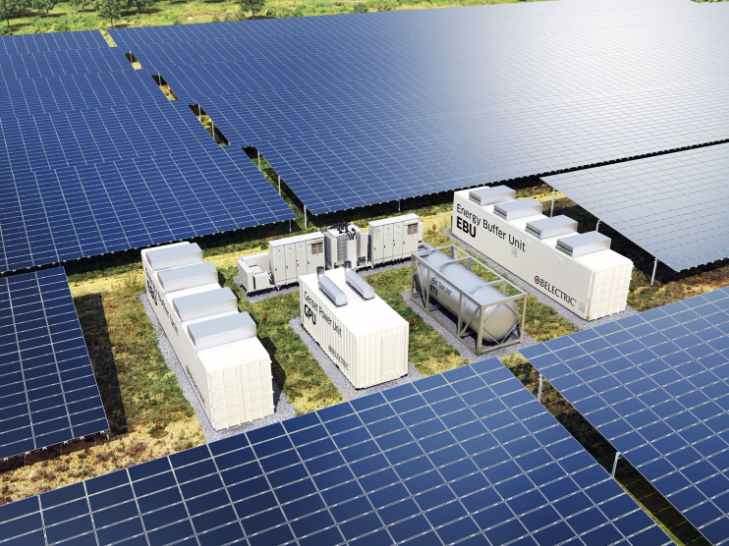As the world moves towards sustainable energy solutions, solar power stands at the forefront of this green revolution. While traditional grid systems and standalone solar setups have their own advantages, the hybrid solar system is emerging as a game-changing solution that combines the best of both worlds. It not only reduces electricity bills but also ensures a continuous power supply, even during outages. Let’s dive deep into understanding what a hybrid solar system is, how it works, and why it is a smart investment for a brighter future.
What is a Hybrid Solar System?
A hybrid solar system is a combination of an on-grid and off-grid solar system. It is connected to the main electricity grid while also having a battery backup to store excess solar energy. This dual functionality allows users to utilize solar power efficiently throughout the day and also during the night or in times of low sunlight or power failures.
In simple terms, when the sun is shining, your solar panels generate electricity. This electricity is first used to power your home. Any extra electricity is stored in batteries, and if the batteries are full, the surplus can be exported to the national grid. At night or during cloudy weather, your home can draw electricity from the batteries. If needed, the system can also pull electricity from the main grid as a backup.
How Does It Work?
The key components of a hybrid solar system include:
-
Solar Panels: Capture sunlight and convert it into electricity.
-
Hybrid Inverter: Manages the flow of electricity between the solar panels, batteries, home appliances, and the grid.
-
Battery Bank: Stores excess solar power for later use.
-
Grid Connection: Serves as a backup energy source when solar and battery power are insufficient.
This smart system automatically switches between solar, battery, and grid electricity depending on your power needs and availability.
Benefits of a Hybrid Solar System
1. Reduced Electricity Bills
By utilizing solar energy during the day and stored energy during the night, you drastically cut down your dependency on the national grid. This leads to significant savings on your monthly electricity bill.
2. Reliable Power Supply
Unlike traditional solar systems, a hybrid system provides backup power during outages. This is especially important in regions where power failures are common. Your essential appliances like lights, fans, and refrigerators can keep running without interruption.
3. Eco-Friendly Solution
Solar energy is clean and renewable. By using solar power instead of fossil fuels, you contribute to reducing greenhouse gas emissions and combatting climate change. A hybrid system maximizes the use of solar power, making it an even more environmentally friendly option.
4. Energy Independence
With a hybrid solar setup, you're less reliant on the power grid. This energy independence can be especially beneficial during times of rising electricity costs or government load-shedding schedules.
5. Smart Energy Management
Hybrid inverters come with modern technology that allows for real-time energy monitoring. You can track your energy production, usage, and battery status through mobile apps or digital displays.
Why is it the Future of Solar Energy?
Traditional solar systems either store energy or export it to the grid — they cannot do both efficiently. Hybrid solar systems are smarter, more flexible, and designed to adapt to changing energy needs. As energy prices rise and climate awareness grows, hybrid systems offer a balanced solution that saves money while ensuring a steady supply of clean power.
Moreover, government incentives and subsidies for renewable energy make it more affordable than ever to install solar systems at home or for businesses. Investing in a hybrid solar system not only boosts your property’s value but also sets you on a path to long-term energy sustainability.
Is It Suitable for Everyone?
Yes — especially for homes, offices, and small businesses that face frequent power outages or want to reduce energy costs. However, the initial setup cost can be higher than a standard grid-tied system due to the added cost of batteries. But considering the long-term savings and the added advantage of backup power, it is a wise investment.
Conclusion
A hybrid solar system is more than just an energy solution — it's a step towards a sustainable, independent, and cost-effective future. It offers the perfect balance between savings, security, and sustainability. Whether you are looking to reduce your electricity bills, ensure an uninterrupted power supply, or contribute to a greener planet, a hybrid solar system is your answer.
By choosing this smart technology today, you are not just saving electricity — you are lighting the way for a better, brighter tomorrow.
